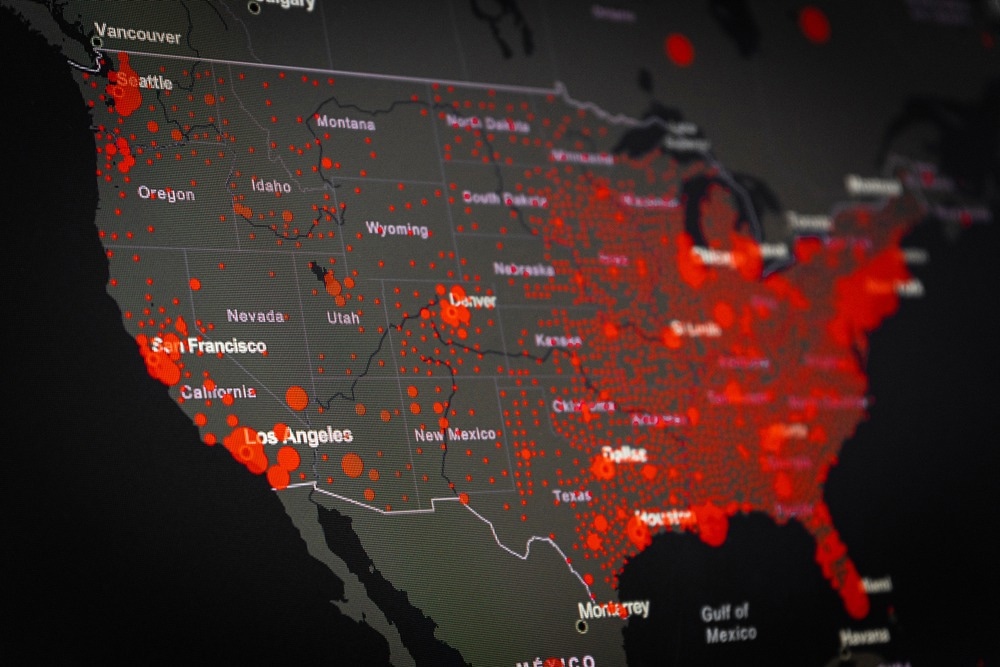A recent study published in Scientific Reports evaluated life expectancy and economic losses due to coronavirus disease 2019 (COVID-19) deaths losses in the United States (US).
 Study: Assessing the impact of one million COVID-19 deaths in America: economic and life expectancy losses. Image Credit: Gargantiopa/Shutterstock.com
Study: Assessing the impact of one million COVID-19 deaths in America: economic and life expectancy losses. Image Credit: Gargantiopa/Shutterstock.com
Background
The COVID-19 pandemic has exacted a severe death toll in the US, with more than one million deaths until May 12, 2022. These deaths have caused social disruption, personal tragedy, and economic losses. Moreover, these losses may not have been evenly distributed, given the socioeconomic inequities.
The study and findings
In the present study, researchers estimated the impact of one million COVID-19-related deaths on life expectancy and economic welfare in the US. Using the US national life tables, they computed life expectancies at birth and age 35, ruling out COVID-19 as the cause. Next, they determined economic losses in three steps.
First, the impact on national income growth was estimated. Second, they estimated the value of statistical life (VSL) using a constant value recommended by the US Department of Health and Human Services (HHS) and age-specific 2000 VSL values. Third, excess mortality risk was assessed using age-specific VSL year (VSLY).
Most deaths occurred in the non-Hispanic White population (64.5), followed by Hispanic (16.1%), non-Hispanic Black (14.3%), and Asian (3.1%) populations. Nonetheless, the Hispanic population showed the highest age-adjusted death rates during 2020-21. Most deaths in non-Hispanic White individuals occurred in those aged 85 or older. In contrast, the 65-74-year age group in the Hispanic population showed the most deaths.
These deaths accounted for a 3.08-year life expectancy reduction at birth and a 3.02-year loss at age 35. Life expectancy reduction was the highest in Hispanic individuals, followed by the non-Hispanic Black and Asian populations. In total, these deaths caused economic welfare losses of around $3.57 trillion. Around $2.2 trillion of the economic losses were due to the deaths of non-Hispanic White individuals.
There were $694.2 billion in losses due to deaths among Hispanic individuals and $579.93 billion in losses due to the deaths of non-Hispanic Black people. When the HHS-recommended VSL was used, losses were estimated to be $9.82 trillion, with the deaths in the non-Hispanic White population contributing 63%.
Nevertheless, losses amounted to $4.85 trillion when estimated using an age-specific VSL, and deaths in the non-Hispanic White population accounted for 58.6% of the loss. Losses were $4.38 trillion when valued using VSLY. As earlier, the non-Hispanic White population accounted for 65.82% of the loss.
Conclusions
The findings revealed unprecedented life expectancy losses not observed since the 1918 influenza pandemic. The million COVID-19-related deaths from February 2020 to May 2022 decreased life expectancy by 3.08 years at birth, 3.02 years at age 35, and 2.07 years at age 65. These losses effectively undid the gains of the past four decades.
Economic losses regarding the value of lives lost and the impact on the national income growth were about $3.57 trillion. Notably, these reductions are likely higher since losses due to long-term impairment and morbidity were not considered. Moreover, the losses were unevenly distributed across racial groups.
For example, economic losses were proportional to the size of the Hispanic population but 30% greater than the population contribution of non-Hispanic Black individuals. Overall, the results underscore the striking economic losses due to excess COVID-19 deaths, disproportionately affecting Hispanic and Black individuals, and the need to invest in health to prevent/absorb economic shocks in the future.